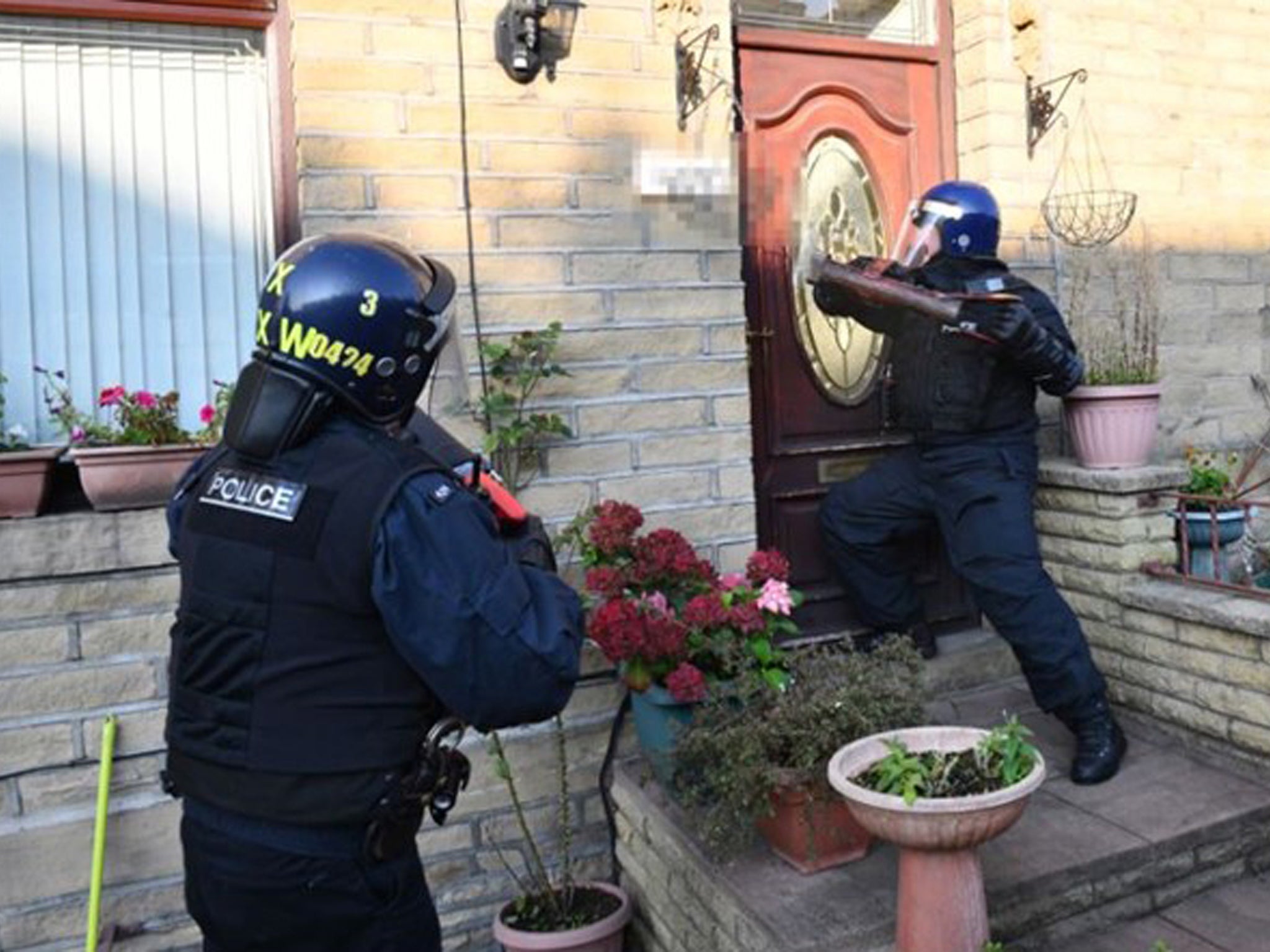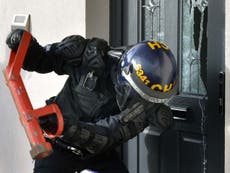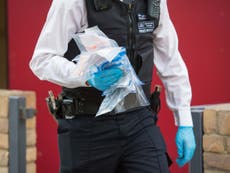Police defeat 10% of UK county lines drug networks in week-long blitz
The operation involved all 43 regional forces in England and Wales

Your support helps us to tell the story
From reproductive rights to climate change to Big Tech, The Independent is on the ground when the story is developing. Whether it's investigating the financials of Elon Musk's pro-Trump PAC or producing our latest documentary, 'The A Word', which shines a light on the American women fighting for reproductive rights, we know how important it is to parse out the facts from the messaging.
At such a critical moment in US history, we need reporters on the ground. Your donation allows us to keep sending journalists to speak to both sides of the story.
The Independent is trusted by Americans across the entire political spectrum. And unlike many other quality news outlets, we choose not to lock Americans out of our reporting and analysis with paywalls. We believe quality journalism should be available to everyone, paid for by those who can afford it.
Your support makes all the difference.About 10 per cent of the UK’s county lines drug networks have been shut down during a week-long crackdown on gangs, police have said.
More than 1,000 people were arrested, with 18 guns, more than £500,000 in cash and more than £1m worth of Class A drugs seized.
Police said the activity last week, involving all 43 regional forces in England and Wales, the British Transport Police and National Crime Agency, was the most successful of its kind.
The operation targeted county lines, a gang model which often sees young and vulnerable people used as couriers to move drugs and cash between cities and smaller towns.
Some 102 "deal lines", linked to unique phone numbers dialled by users to buy drugs, were shut down.
It amounts to at least a tenth of the estimated 800 to 1,100 active county lines currently believed to be operating in the UK.
Each line can make about £25,000 a week and police are still unsure where much of the money ends up.
Investigators said restrictions imposed during the Covid-19 pandemic and a better understanding of mobile phone data had helped them target the drug dealers operating the lines.
Metropolitan Police Deputy Assistant Commissioner Graham McNulty, the National Police Chiefs' Council (NPCC) lead for county lines, said: "We know now what a county lines phone looks like.
"And we know what the activity looks like on that phone.
"From all the cases we have dealt with, which have gone to court, we know it's pay as you go, we know it's unregistered, we know there's bulk text message usage, selling your wares.
"We know the average recipient list and we know about the incoming activity on that phone, which is helping us to really focus on county lines."
Senior police officers have previously said they are in talks with the Home Office and the telecoms industry to find a way to stop phones being used for county lines.
About a third of all lines are thought to operate out of London, with between 12 per cent and 15 per cent running from both Liverpool and Birmingham.
The Met's Detective Superintendent Mike West said 30 vulnerable youngsters found "at significant risk" across the country have been taken back to the capital since November, with some drug runners found to be as young as 14.
His force also saw the most line holders arrested in a single week, with 23 held during the latest crackdown.
The officer said many of the criminals running drug lines are linked to serious violence in the capital, including murder and firearms possession.
"Around two-thirds or so are linked to London gangs. That is a particular lifestyle and so the cash is spent sometimes very quickly as well," he added.
The crackdown was part of fresh efforts to tackle county lines drug dealing from last November, which has seen a £25m commitment from the Home Office.
Home Secretary Priti Patel said: "I will not tolerate county lines drugs gangs terrorising our communities and exploiting young people, which is why I have made tackling this threat a priority.
"I saw first-hand one of the operations last week and the results of this latest crackdown are hugely impressive.
"They send a clear message to criminals that law enforcement is coming after them."





Join our commenting forum
Join thought-provoking conversations, follow other Independent readers and see their replies
Comments